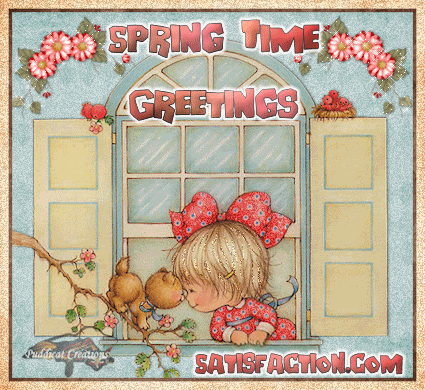
Today I'd like to welcome author Lynda McDaniel to my blog. Could you share a little bit about yourself with my readers?
I’m a late bloomer—I didn’t start writing professionally until I was 25 years old. A lot of people think they have to write when they’re kids or in high school, that it’s too late for them to start now. But that’s just not true. That’s one of the reasons I wrote Words at Work. My students and clients kept telling me that my story—from getting a late start to facing some hurdles along the way—inspired them that they can write too. And they do.
I’m a late bloomer—I didn’t start writing professionally until I was 25 years old. A lot of people think they have to write when they’re kids or in high school, that it’s too late for them to start now. But that’s just not true. That’s one of the reasons I wrote Words at Work. My students and clients kept telling me that my story—from getting a late start to facing some hurdles along the way—inspired them that they can write too. And they do.
My writing career began in the most unlikely of places—just a speck on a map of the North Carolina mountains—but it was ripe with opportunity for me. That’s where I met a school director who asked if I’d like to learn public relations. To be honest, I should have answered, “What’s that?” Instead, I said, “Sure,” and took to it like ink to newsprint. Once I saw my first published article, I was hooked. I’ve never stopped writing. I have since written five books and hundreds of magazine articles. I now spend most of my time teaching and coaching writing, which is so gratifying. I enjoy sharing the fruits of my life with others.
Well, it's a good thing you didn't ask, "What's that?" then. What would you say is your # 1 pet peeve? (writing related) (non-writing related)
1. Writing related: People thinking they can just dash something off and get the results they want. Sure, like Mozart, every now and then someone has that gift. But for most of us, it takes time. You can learn to use your time wisely, but still, good writing takes time.
2. Non-writing related: People who don’t answer e-mail or return phone calls. I’m not talking about spam or telemarketers, but communication that warrants an answer—even if it’s brief or says no thanks. We need to respect one another more.
I find I don't write letters as I use to. Matter in fact, my snail mail correspondence is null these days. Do you think our fast paced life is part of the writing problem? How?
I do. We dash off e-mail, texts and tweets and forget that polished writing takes time. Fast communication like I just mentioned is great for quick answers, but it won’t get you a job or get a book published. A client recently sent me a job applicant’s query—it looked like a tweet. She immediately deleted it.
I do. We dash off e-mail, texts and tweets and forget that polished writing takes time. Fast communication like I just mentioned is great for quick answers, but it won’t get you a job or get a book published. A client recently sent me a job applicant’s query—it looked like a tweet. She immediately deleted it.
That's pretty bad. If you want to be a professional, you need to have some semblance. How do you stay sane in this fast paced life?
That’s a great question! I have to really work at not overworking. I’ve recently adopted a four-day work schedule. I’m sure I won’t always be able to honor it, but it was the only way I could think of to slow myself down.
That’s a great question! I have to really work at not overworking. I’ve recently adopted a four-day work schedule. I’m sure I won’t always be able to honor it, but it was the only way I could think of to slow myself down.
We all need some down time. I try not to be on the computer much over the weekend. I keep Saturday and Sunday really limited in my computer use. I just need to get away from it. I have to tell myself there is life beyond the computer. What do you do to relax (hobby, favorite activity)?
I enjoy films—another form of storytelling. I love stories of all kinds. I also love dogs of all kinds, and I spend time walking my dog in parks and natural settings. And cooking. Just as I don’t like ho-hum writing, I don’t like boring meals.
I enjoy films—another form of storytelling. I love stories of all kinds. I also love dogs of all kinds, and I spend time walking my dog in parks and natural settings. And cooking. Just as I don’t like ho-hum writing, I don’t like boring meals.
I love good movies too. Now the cooking part may be another story. I prefer quick and easy. Who or What has had the most influence in your career?
Brenda Ueland, author of If You Want to Write: A Book about Art, Independence and Spirit. More than any other book, this book inspired me to both honor my own creativity and learn how to improve upon it. Brenda is amazing. She lived earlier in the 20th century, but I use present tense because she still seems so alive. Her words jump off the page. I could hear her voice in my head as I wrote Words at Work—and I hope I succeeded in sharing the same kind of inspiration and encouragement with my readers.
Brenda Ueland, author of If You Want to Write: A Book about Art, Independence and Spirit. More than any other book, this book inspired me to both honor my own creativity and learn how to improve upon it. Brenda is amazing. She lived earlier in the 20th century, but I use present tense because she still seems so alive. Her words jump off the page. I could hear her voice in my head as I wrote Words at Work—and I hope I succeeded in sharing the same kind of inspiration and encouragement with my readers.
And Bird by Bird by Anne Lamott. Her chapter on first drafts is the best in the business. It made me a believer—that my first drafts weren’t a sign I was a lousy writer. Everyone writes bad first drafts; we just need to spend the time to make them great fourth or fifth drafts (or 25th drafts, if necessary).
It is always good to get inspiration from someone or something. Do you have any other books on the market? if so what are some of them?
Current books include High Road Guide to the North Carolina Mountains and a new one, Contemporary Hawaii Woodworkers available through www.contemporaryhawaiiwoodworkers.com
Current books include High Road Guide to the North Carolina Mountains and a new one, Contemporary Hawaii Woodworkers available through www.
Interesting all non-fiction. Do you read much? What genre do you like to read? Do you have a favorite author? favorite subject?
I am a voracious reader, which by the way is a great way to fuel creativity in my own writing. What a fun way to improve writing! I love mysteries—but they have to be well-written mysteries like those from Dennis Lehane, Henning Mankell, and P. D. James. I also read The New Yorker and the New York Times because the writing is so good.
I am a voracious reader, which by the way is a great way to fuel creativity in my own writing. What a fun way to improve writing! I love mysteries—but they have to be well-written mysteries like those from Dennis Lehane, Henning Mankell, and P. D. James. I also read The New Yorker and the New York Times because the writing is so good.
Mysteries can keep you turnig the pages. Do you think everyone can write?
Yes, that’s the basis for Words at Work. Everyone can learn to write. And at the risk or repeating myself, bad writers just stopped too soon.
I guess if you keep telling us we'll get the message sooner or later; that anyone can write. What do you see as the #1 cause for use of poor words- or writing downfall?
Stopping too soon. Good writing is really good editing. Bad writers just stopped too soon. Take the time to edit, edit, edit. The best writers often edit 25 times. Some people find that depressing, but I think it’s encouraging. It means that, unlike Mozart, you don’t have to have amazing talent. You just need to stick with it and practice and polish your writing. It gets easier and easier the more you do it. It’s like an athlete’s muscle memory—you get the hang of it.
Stopping too soon. Good writing is really good editing. Bad writers just stopped too soon. Take the time to edit, edit, edit. The best writers often edit 25 times. Some people find that depressing, but I think it’s encouraging. It means that, unlike Mozart, you don’t have to have amazing talent. You just need to stick with it and practice and polish your writing. It gets easier and easier the more you do it. It’s like an athlete’s muscle memory—you get the hang of it.
I have told that to my daughter, who is taking first year English. She just looked at me and said, "I'm not a writer; I don't like to edit." What would you say is the main important thing to remember about writing?
The same as my comment above about the #1 cause of writing downfall—don’t stop too soon, don’t give up after the first draft—it’s just a very basic beginning. The best stuff is yet to come.
The same as my comment above about the #1 cause of writing downfall—don’t stop too soon, don’t give up after the first draft—it’s just a very basic beginning. The best stuff is yet to come.
Keep on keeping on. What really matters when it comes down to writing?
Editing. Editing. Editing. And be adventurous. Dig deeper and come up with some fresh ways of saying something. Study great writers and learn how they use similes, stories, what-ifs, and foreshadowing, for example, to create excitement.
Editing. Editing. Editing. And be adventurous. Dig deeper and come up with some fresh ways of saying something. Study great writers and learn how they use similes, stories, what-ifs, and foreshadowing, for example, to create excitement.
Oh, the dreaded "E" word. What do you find to be the hardest part of writing for yourself? How do you over come it?
The blank screen is always a problem, but I’ve been writing so long, I know the best antidote is to simply start writing. Just get something down and go from there. I talk about this in Words at Work—“Good writing is really good editing” and “Bad writers just stopped too soon.”
Ah, yes, blank screen. Happens to even the best writers. In your clients or students what do you find that is the hardest part of writing? What advice do you give them for overcoming this obstacle?
Ah, yes, blank screen. Happens to even the best writers. In your clients or students what do you find that is the hardest part of writing? What advice do you give them for overcoming this obstacle?
Most people don’t believe in themselves. They tell themselves all sorts of terrible things. I know because I used to do this, too. I encourage my clients and students; I show them how through careful and playful rewrites, they can achieve what they want. This is the whole reason I wrote Words at Work—to help people understand the creativity and writing processes. I’m pleased that Words at Work just won the top award in the National Best Books 2009 Awards in the category of writing/publishing. That really validates my message.
Confidence, we can all use more of that. Little Engine that could. What would you like to see the reader come away with after reading this book?
1. An understanding of the writing process—there’s a way to write that helps us create our best, and yet for some reason this is not taught in school.
2. The importance of sticking with it—editing it one more time.
3. An appreciation of the creative process and how our brains are filled with great ideas we don’t even know we have!
4. Patience with themselves and the writing process. Over time, with practice and patience, they can become good writers.
Good points. What part of the writing process do you enjoy most?
I really enjoy editing. I’ve done the hard part—getting that first draft down—and now I can make verbs more vivid, change passive to active voice, add some extras for excitement such as similes, alliteration, stories. That’s fun for me.
Make a game of it. Do you have a web site ? How can you be reached?
I have two web sites: www.LyndaMcDaniel.com and www.afcbw.com. Either one will get you to my blog, Word 4 Word, which offers all kinds of writing tips; more information about Words at Work; and information about the Association for Creative Business Writing (AFCBW). AFCBW is a community of experts and peers committed to helping members create attention-getting proposals and reports, blogs and newsletters, letters and Web copy—anything they write at work. I've taught a lot of writing seminars, but without follow-up, the information fades like yesterday’s pop stars. I often left wondering how a lifetime of writing issues could be corrected in an hour or a day. That’s when I decided to start the Association for Creative Business Writing to provide year-round support. Members of AFCBW keep learning and expanding their creativity—and there’s no telling where that can lead!
I've been to your web site. There's a lot of good information on it. Do you have any closing thoughts you'd like to leave the readers.
Practice and perfect your writing. Dig deeper for a fresher way of saying something. And most of all, believe in yourself.
Thanks, Lynda, for taking the time to share with us today.
 Read an On-line Interview here.
Read an On-line Interview here.Read guest article: 7 Ways to Improve your Writing here.
Read my review here
More about this book may be found here.
A copy of this book was provided for review by Virtual Book tours.
Visit Virtual tours here

















































No comments:
Post a Comment